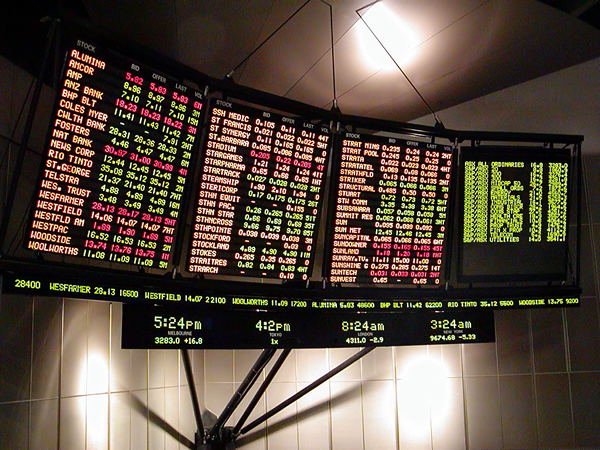Original article published on the 28th January 2011 by Juan Ramón Rallo
Following on from our recent discussion about the viability of the stock market as an instrument of long-term investment, another one of the objections that usually comes up is: “Not everyone can win in the stock market”, “If somebody wins it is because he bought cheap from somebody or sold high to somebody else, and therefore that other person is losing”. This fear is a reflection of the widespread mercantilist view that the economy is a zero-sum game. But over three centuries it should be obvious that, thanks to economic growth, all members of a society can win. So why then do they not understand that every investor can win in the stock market?
The reason for their not understanding probably comes from not knowing the exact nature of stocks. A stock or share is no more than a part of the property rights of a business: whoever buys all of the shares becomes the sole owner of the business; whoever acquires 10% will have the right to keep 10% of the assets of the business and 10% of its future profits; and the same with whoever possesses 0.00001% (the different methods of control each one would have over the management is another issue).
This explanation might seem trivial, but it really is not: whoever buys a share buys part of a business; part of its property and its future production. Or, to put it another way, whoever buys a share is not buying a lottery ticket or entrance to a casino… it’s another matter if a share is used as such (any object can be used speculatively). In effect, not everyone can come out as winners in games of chance, as they are games that do not generate wealth and whose only purpose is to redistribute the wealth of its participants.
On the stock market, however, things work differently. Stockholders with a long-term mentality do not enter into the stock market to redistribute existing wealth, but to take possesion of future wealth that companies will generate. The continued profits of a company – which is no more than the monetary expression of making goods or services worth more than the cost to produce them – enrich the stockholder either directly (through dividends) or indirectly by increasing the net worth of the company which he owns (reinvestment, stock repurchase, debt repayment…).
Can every company grow in the long-term? Without a doubt yes, purely because of Say’s Law: production buys production; the increase in the supply of iPads –and the income derived from it– make up the demand to absorb the increase in supply of, for example, Chinese coal.
Is every company going to grow in the long term? Most likely no, because human beings are fallible and make mistakes when investing –many times for political reasons–, but the mistakes of one company create opportunities for profit for other companies. For that reason, investing in a particular share –in a particular company– without much knowledge of the topic can be very risky and can give others the opportunity to profit at our expense. However, investing periodically in one of the best stocks of a country (in a stock market index like the Dow Jones or Standard and Poor’s) ensures that the loses of some companies will be compensated by the extraordinary profits of others over time. As I have said many times: the historical average of the US stock market after inflation is around 7% per annum… even when in the last 200 years tens of thousands of American companies have gone bankrupt.
If in these last 200 years more people had saved and put more money into the stock market, this 7% of annual return wouldn’t have been redistributed between more people, but rather the entire American economy would have been capitalized on it even more: companies would have produced more goods and services and a greater number of stockholders would have become rich. We should never forget that, contrary to what is maintained by the quack Keynesians, saving is the engine of investment and accumulation of capital.
In the long-term, it is possible for everyone to win in the stock market for similar reasons that it is possible for everyone in the world to improve their standard of living in a market economy. Only if we believe, like Tertullian did in the third century or the Club of Rome 50 years ago, that we have already reached the limits of our economic development could we coherently assert that not all investors in the stock market can win in the long-term. But this, fortunately, is a very unlikely scenario which, incidentally, would make a public pension system even more impractical.
And having come to this point, I will tell you another day, if you will allow me, about the supposed “risks” of the stock market and why pension funds are usually a terrible form of investment in Spain.
Original article in Spanish: http://juanramonrallo.com/2011/01/%C2%BFpueden-ganar-todos-en-la-bolsa/


Leave a Reply